The Importance of Magnets in Modern Manufacturing
Magnets are essential in manufacturing processes across various industries, from electronics to automotive to medical devices. As manufacturing has evolved, so has the use of magnets to improve efficiency, precision, and reliability. This article delves into the importance of magnets in modern manufacturing, examining how they contribute to automation, material handling, quality control, and sustainable production.
1. Magnets in Material Handling and Logistics
One of the most visible roles of magnets in manufacturing is in material handling. Magnets are used to lift, move, and position heavy metal components, making processes faster and safer. Magnetic lifting devices, often found in steel mills, scrap yards, and machine shops, allow workers to handle large quantities of ferrous materials with minimal effort and increased precision.
In logistics, magnetic conveyors and belts help transport items along production lines. These conveyors use magnetic rollers to move materials smoothly, minimizing the risk of product damage and enabling the automation of workflows. Magnetic handling is especially valuable in environments with small or intricate components, where precision is key to maintaining product quality.
2. Magnets in Robotics and Automation
In the era of Industry 4.0, automation is transforming manufacturing, and magnets are at the core of many robotic systems. Robots equipped with magnetic grippers can handle metal parts without the need for clamping or additional tools. These magnetic grippers are adjustable, allowing them to pick up, hold, and release items as needed, reducing downtime and increasing productivity.
Magnets are also essential in magnetic linear motors, which provide the high-speed, accurate motion necessary in automated assembly lines. These motors convert electric energy into linear movement, enabling precise positioning and reducing wear and tear on mechanical parts. As automation continues to advance, magnets will play an increasingly important role in enabling precision movement in robotics and smart manufacturing.
3. Magnets in Machine Tooling and Fixturing
Magnetic chucks are widely used in machine tooling and fixturing to secure parts for machining. Unlike mechanical clamps, magnetic chucks allow for a larger working area by reducing obstructions, which is particularly useful when handling complex shapes or delicate materials. By firmly holding metal pieces in place, magnetic chucks ensure stability and accuracy during cutting, milling, grinding, or welding operations, ultimately improving product quality.
Additionally, electro-permanent magnets, which require only a momentary electric pulse to activate or deactivate, are gaining popularity in machine tooling. This technology offers both the reliability of permanent magnets and the flexibility of electromagnets, allowing for quick and secure clamping without continuous energy consumption.
4. Quality Control and Inspection with Magnetic Sensors
Quality control is critical in manufacturing, and magnetic sensors are frequently used to ensure the accuracy and consistency of products. Magnetic sensors, including Hall effect sensors and magneto-resistive sensors, detect changes in magnetic fields and are used to measure distance, alignment, and rotational speed. These sensors are often embedded in production equipment to monitor wear, position, and alignment, helping manufacturers prevent defects and reduce downtime.
In automotive and aerospace manufacturing, magnetic sensors provide crucial data for quality assurance by identifying minor imperfections in metal parts that might compromise product integrity. This non-invasive inspection method helps maintain high standards of quality, especially in industries where safety and precision are paramount.
5. Magnets in Sustainable Manufacturing
Magnets play an integral role in the drive toward sustainable manufacturing. Magnetic separation, a technique used to sort and remove metal contaminants from raw materials, reduces waste and increases the quality of recycled materials. This process is widely used in recycling plants to separate ferrous metals from non-metals, plastics, and other recyclable materials, contributing to a circular economy.
Magnets are also essential components in electric motors and generators, which power renewable energy sources like wind turbines and electric vehicles (EVs). High-performance permanent magnets, often made from rare-earth materials like neodymium, are key to the efficiency of these systems, supporting the shift toward cleaner energy sources and reducing the environmental footprint of manufacturing processes.
6. Magnets in Advanced Manufacturing and Additive Manufacturing
In advanced manufacturing, such as additive manufacturing (3D printing), magnets are used to control the positioning of components and to assist in the post-processing stages. For instance, magnetic fields can be used to align metal powder particles in powder bed fusion, a common 3D printing technique, resulting in better part density and mechanical properties.
Magnets are also instrumental in the development of magnetic materials specifically engineered for additive manufacturing. These materials, often magnetically active powders, have potential applications in producing complex geometries with embedded magnetic properties, enabling the creation of unique components for the medical, aerospace, and electronics industries.
7. The Role of Magnets in Electromagnetic Braking Systems
Magnets are used in electromagnetic braking systems, which are common in various types of machinery and transportation equipment. These braking systems use magnetic force to create friction, slowing down or stopping mechanical components without physical contact. Electromagnetic brakes reduce wear and tear on components, leading to longer equipment life and reduced maintenance costs. This type of braking is especially valuable in high-precision applications, where traditional friction brakes might cause unwanted vibrations or wear.
In manufacturing, electromagnetic brakes are often used in conveyor systems, packaging machinery, and automated guided vehicles (AGVs), where smooth and controlled braking is critical to efficient and safe operation.
Conclusion
Magnets are indispensable in modern manufacturing. They streamline material handling, enhance automation, improve quality control, and contribute to sustainable practices. As industries continue to evolve with advancements in robotics, automation, and additive manufacturing, magnets will remain crucial for enhancing productivity, efficiency, and safety. Their role in the shift toward sustainable and smart manufacturing underscores their importance not just for today, but for the future of industry.
